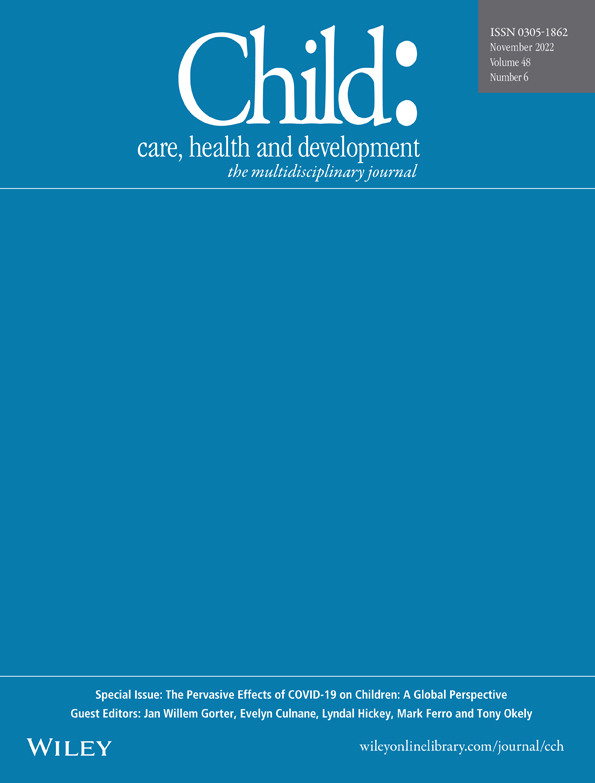Children's anxiety and parenting self-efficacy during the COVID-19-related home confinement
Funding Information: The authors received no financial support for the research, authorship and/or publication of this article.
Abstract
Background
The COVID-19 crisis influenced the lives of families and preschoolers, worldwide. School closures and restriction measures introduced distance learning for preschoolers and remote working for parents. Social distancing narrowed opportunities to meet with peers and enjoy leisure activities. Additionally, social and mental services closures limited young children's accessibility to mental, speech and occupational health services. The aim of the current study was to investigate how home confinement during the third wave of the COVID-19 pandemic affected parenting self-efficacy and preschoolers' anxiety.
Method
An online survey based on a convenience sample took place on April 2021 to evaluate how home confinement to halt the third wave of COVID-19 pandemic influenced children's anxiety and parenting self-efficacy (PSE). Parents of 146 children (65 girls [44.5%] and 81 boys [55.5%]; aged 2–6 years old) were enrolled and completed a demographics form, the Preschool Anxiety Scale (PAS) and the Tool to Measure Parenting Self-efficacy (TOPSE).
Results
Most of the participants reported that the relationship with their child was positively affected from staying at home. TOPSE mean scores reflected average parenting self-efficacy. PSE was negatively correlated with children's anxiety. COVID-19-related variables ‘Parent's vaccine hesitancy’ and ‘Death of a loved one’ had a clear effect on preschoolers' anxiety, whereas the latter also on PSE.
Conclusion
Findings highlight the necessity of implementing public health strategies to strengthen families and support parents and their children during the ongoing health crisis.
CONFLICT OF INTEREST
The authors declare that they have no conflicts of interest.
Open Research
DATA AVAILABILITY STATEMENT
The data that support the outcomes of the present study are available on demand from the corresponding author.




